
Summer Sessions
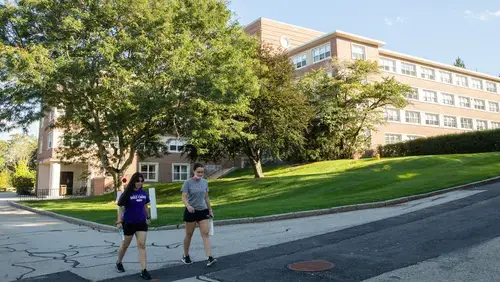
Enroll in Summer Classes at Holy Cross
Review instructions, required forms and deadlines from the Registrar's Office.
Features to the Summer Session Program in 2026!
- A new and interesting slate of courses.
- All courses are online-only.
- Most courses are held in the evenings.
- There are 6 hours of instruction per week (1.0 credits) for 7 weeks.
Most courses have 2 hours of asynchronous learning (replacing 2 hours of synchronous meetings) per week. The amount of homework and other out-of-class assignments have not changed.
Full instructions and course descriptions below. For additional information or questions, email us at: summersession@holycross.edu.
2026 Summer Session Enrollment Instructions
- Summer Session runs for 7 weeks: June 1 - July 17, 2026.
- Enrollment opens for Holy Cross students on March 11, 2026.
- Class sizes of 24 or less.
- Courses taught, with office hours, by Holy Cross faculty.
- Courses have the same standards/expectations as seen during the academic year.
- Tuition: $3300 per 1.0-unit course (plus additional lab or art fees, where appropriate).
- Financial aid will be available to eligible current Holy Cross students with demonstrated need or extenuating circumstances. All HC students unable to pay the full tuition are encouraged to apply, starting on February 26, 2026 (Financial Aid Application Form).
- Permission to take two courses requires the approval of a class dean.
- Courses can be taken Pass/No Pass at same cost (but do not count toward 32 course requirement unless grade is uncovered before graduation).
- Course grade factors into Holy Cross GPA if taken for letter grade.
- Each course must have a minimum number of students enrolled to run. If enrollment does not reach the necessary minimum by mid-May, the course will be canceled and all payments will be refunded.
Enrollment opens on March 11, 2026 and remains open until May 27, 2026. All students need to submit an Enrollment Form (Enrollment Intent and Agreement Form) to be term-activated. You will then be notified when you are cleared to self-enroll in an open summer course through STAR.
Accepted Holy Cross students in the Class of 2030 with a compelling academic reason to take one of our online courses through fully remote access from off campus in summer 2026 need to first contact their class dean (classdean2030@holycross.edu). Other current high school seniors should first contact the Director (summersession@holycross.edu) if interested in taking one of our online courses through fully remote access from off campus in summer 2026.
In addition to the Enrollment Form (Enrollment Intent and Agreement Form), students from other Colleges/Universities will also need to submit a completed Authorization Form from their home institution; this form will need to be approved by Holy Cross before enrollment is permitted. Full tuition payment of $3300 is due at time of enrollment (see Guest Payment Instructions).
Enrollment by applicants who are not currently matriculated students at Holy Cross is subject to acceptance by the College, available seating in courses, and approval by the individual professors.
Financial Aid is available for eligible current Holy Cross students. Eligibility levels are established in part by the student's Holy Cross demonstrated financial need as determined by the Financial Aid Office. Additional aid is available for students with extenuating circumstances. All HC students unable to pay the full tuition are encouraged to apply: Financial Aid Application Form - open February 26 to May 13, 2026 (applications after May 13 will still be considered but funding may be limited).
- February 12: Course Suggestion Form Opens
- February 26: Rolling Financial Aid Application Form Opens – Holy Cross students only, applicants can expect a response within 2 weeks
- March 11: Open Enrollment Through Enrollment Intent and Agreement Form for Holy Cross students
- March 19: Open Enrollment Through Enrollment Intent and Agreement Form for Students Outside Holy Cross - Authorization Form also required and full payment due at time of enrollment (Guest Payment Instructions)
- April 27: Tuition Due in Full ($3300 less any financial aid) or Students will be Withdrawn (No Fees) - See Holy Cross Student Payment Instructions or Guest Payment Instructions
- After April 27: Tuition Due in Full ($3300 less any financial aid) upon posting of bill to account (usually within two business days from Time of Enrollment Through Enrollment Intent and Agreement Form) - (See Holy Cross Student Payment Instructions or Guest Payment Instructions)
- May 1 – June 1: Withdrawals by Student or Bursar (for lack of prompt payment) will incur a Processing Fee (10% of tuition paid)
- May 27: Last Day to submit Enrollment Intent and Agreement Form
- June 1: Summer Session Begins
- June 2: Last Day for Students to Withdraw with small Processing Fee (10% of tuition paid)
- June 3: Students Withdraw with large Processing Fee of (50% of tuition paid)
- After June 3: Student to Withdraw with maximum Processing Fee (100% of tuition paid)
- June 5: Last Day to Drop Without Record
- June 12: Last Day to Elect Pass/No Pass (Standard P/NP Policies Apply)
- June 19: Holiday, No Classes
- July 4: Holiday, No Classes
- July 6: Last Day to Withdraw (W Posted to Transcript)
- July 17: Summer Session concludes
Payment of tuition charges ($3300, plus art fee where applicable, less any awarded financial aid) is due when course enrollment is billed to your account (usually within two business days of course enrollment) - see Holy Cross Student Payment Instructions or Guest Payment Instructions. After April 27, 2026, students showing an unpaid summer tuition balance due for two days will be dropped from the course (and charged a processing fee - See 2026 Tuition Refunds).
If the College cancels a course, you will receive 100% of the tuition at time of cancellation, if you do not wish to enroll in a different open course.
Withdrawals by April 27, 2026 will not incur any fees.
PLEASE NOTE: The College will charge you a processing fee equal to 10% of the original net summer tuition charges if you withdraw from May 1 - June 2, 2026, 50% of the original net summer tuition charges if you withdraw on June 3, 2025, and 100% of the original net summer tuition charges if you withdraw after June 3, 2025. This schedule applies in lieu of the College's Refund Policy.
Tuition - $3300 per 1.0-unit course (plus additional lab or art fees, where appropriate)
Optional summer housing (and/or meal plans) carry additional charges and requires the completion of a separate application. Summer Session does not award financial aid toward housing/meals. Students with questions about staying on campus during the summer session should contact the Residence Life & Housing Office (summerhousing@holycross.edu).
2026 Summer Session Courses
Instructor Name: Dr. Robert Prior
Course Number and Name: ACIP 370, Leadership in the Sports World
Common Area Requirement(s) fulfilled: N/A
Program(s) Requirement(s) fulfilled: N/A
Prerequisite(s)/Permission of Instructor: Permission from ACIP
Meeting Time: Synchronous online classes from 6-8pm on Tuesdays and Thursdays, plus 2 hours of unscheduled asynchronous time per week.
Course Description: This course examines the qualities and skills necessary to lead a successful sport organization. Students will research the sports industry and identify current and past leaders of sport organizations who have made a lasting impact on the industry with their respective leadership philosophies. Strategic planning, goal setting, motivation, creative problem solving, effective communication and teamwork will be examined and practically applied through sports industry focused projects and activities. Students will participate in an internship for 8-10 hours per week; 30% of the final grade for the course will be based on internship evaluations.
Note: Students will participate in a required internship for 8-10 hours per week; 30% of the final grade for the course will be based on internship evaluations. Students should apply to the AIP Program via this link https://www.holycross.edu/aip, in order to receive a permission code for the course. It is not necessary to have an internship lined up before you sign up for the program.

Instructor Name: Clarissa Carvalho
Course Name and Course Number: Anthropological Perspectives, ANTH101
Common Area Requirement(s) fulfilled: Cross-Cultural Studies / Social Sciences
Program(s) Requirement(s) fulfilled: Anthropology Major
Prerequisite(s)/Permission of Instructor: None
Meeting Times: Tuesdays/Thursdays, 6-8pm, and 2 hours asynchronous per week
Course Description: This course provides an introductory view of cultural anthropology. We begin by defining anthropology within the broader field of Social Sciences, as well as discussing the four fields of anthropology and a brief history of the discipline. The concepts of culture, ethnocentrism, relativism; ethnography and its ethical boundaries are also discussed in the first part of the course. From then on, we will approach a variety of anthropological topics, including kinship, gender, sexuality, health and medicine, religion, ritual and economics. By the end of the course, students will be able to think critically about the role of cultural anthropology in the globalized world.
Image credit: Diego Delso, delso.photo, License CC BY-SA

Instructor Name: Kalpana Kumar
Course Name and Course Number: Health and Wellness, BIOL 114
Common Area Requirement(s) fulfilled: Natural Science
Program(s) Requirement(s) fulfilled: None
Prerequisite(s)/Permission of Instructor: None
Meeting Times: Monday and Wednesday 6 to 8 PM plus 2 hours asynchronous per week
Course Description: This course offers a holistic and practical approach to understanding health and wellness in the context of everyday life and societal responsibility. Students will examine how physical, mental, emotional, social, and environmental factors influence both individual and community health. Some of the topics include the college transition and academic success, mental health and stress management, chronic disease prevention, physical fitness, nutrition, sleep, substance use, body image, infectious diseases, and environmental wellness. The course also explores the roles of social and spiritual wellness in fostering a balanced and meaningful life.

Instructor Name: Alimatu Acheampong
Course Number and Name: BIOL 199, Introduction to Human Nutrition
Common Area Requirement(s) fulfilled: Natural Science
Program(s) Requirement(s) fulfilled: Appropriate for students interested in allied health, health sciences, and public health.
Prerequisite(s)/Permission of Instructor: None
Meeting Times: Mon, Wed, and Thurs: 5-7 pm. Thursdays will be asynchronous for weeks 2-6
Course Description: This course introduces students to the science and principles of nutrition, with emphasis on how nutrition influences health and wellbeing. Topics covered will include the function of nutrients in the body, the physiological processes involved in digestion and absorption, the role of nutrition throughout the human life cycle, and the relationship between food substances and diseases such as heart disease, cancer, and obesity.
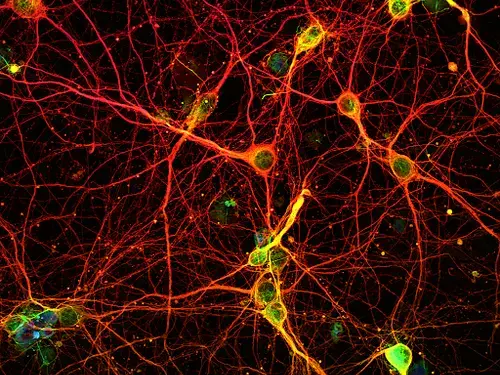
Instructor Name: Dr. Harshada Sant
Course Name and Course Number: Neurobiology BIOL 269
Common Area Requirement(s) fulfilled: none
Program Requirements:
- Biology Major: Cellular and Molecular Biology Distribution Area
- Neuroscience Major: Intermediate Neuroscience Core Course
- Neuroscience Minor: Neural Mechanisms
- Health Studies Major: Upper Level Depth Course (Category One: Natural Sciences and Statistics)
Prerequisite(s)/Permission of Instructor: BIOL 161
Meeting Times: Tuesday and Thursday, 5-7 pm, plus 2 hours asynchronous session
Course Description: A study of the nervous system at multiple levels, from molecular to the systems level. Major topics include: structure of the nervous system and neurons, generation of electric signals, function of synapses, structure and function of sensory and motor circuits, and a discussion of higher order processing. Biology Major distribution area: Molecular and Cellular biology.

Instructor Name: Ji Hao
Course Number and Name: CHIN 199 Fantastic Beasts
Common Area Requirement(s) fulfilled: Cross-Cultural; Literature
Program(s) Requirement(s) fulfilled: Asian Studies; Chinese Studies
Prerequisite(s)/Permission of Instructor: None
Meeting Times: Tuesday, Thursday 6-8 PM (ETS) plus two asynchronous hours per week
Course Description: This course explores human–animal relationships in China from past to present, examining how animals (both supernatural and worldly) have shaped cultural imagination, social life, and storytelling. Students will investigate animals as cultural symbols, human–animal encounters across historical and social contexts, and ethical and philosophical debates about animals and humanity. Through critical analysis of literary works in dialogue with Chinese philosophy, religion, art, popular culture, and modern media, students will explore the complex and ongoing interactions between humans and animals throughout Chinese history and society.

Instructor Name: Love Odetola
Course Name and Course Number: CISS 150: Introduction to Global Health
Common Area Requirement(s) fulfilled: Cross-Cultural Studies
Program(s) Requirement(s) fulfilled: Health Studies Major Requirement
Prerequisite(s)/Permission of Instructor: N/A
Meeting Times: Tuesday and Thursday 5-7pm EST plus 2 hours unscheduled asynchronous time
Course Description: Poverty is a key driver of many preventable diseases, while national development often leads to improved health outcomes. Understanding the connection between health and development requires considering broader socio-political and economic factors. In the context of globalization and international development, a complex international health regime has emerged. This course explores the linkages between health and development within the international political economy of health. Key topics include global health concepts and architecture, the global burden of disease, health and development in nations, and the political-economic determinants of health. Using social, economic, and epidemiological perspectives, the course emphasizes public health and entrepreneurial approaches to addressing health challenges and driving improvements in resource-constrained and emerging nations.
This summer includes an exciting opportunity for the class to partner with SOCL 263, Medical Sociology, for a “Global is Local” component covering domestic materials not typically possible in a traditional Global Health course.

Instructor Name: Elizabeth Seidler
Course Number and Name: ECON 149, Statistical Analysis
Common Area Requirement(s) fulfilled: Mathematical Science
Program(s) Requirement(s) fulfilled: biology, economics, neuroscience, psychology, sociology, statistics, and health professions
Prerequisite(s)/Permission of Instructor: none
Meeting Times: Mondays and Wednesdays 5:30 -7:30pm EST plus 2 hours asynchronous
Course Description: This course introduces probability and statistics. After covering the basic summary statistics, the course transitions into the construction and the rules of probability, such as the permutations and combinations, addition law, multiplication law, conditional probabilities, and Bayes's Theorem. This knowledge is necessary for the study of random variables, which is the focus of the remainder of the course. Within random variables, topics include discrete random variables, continuous random variables, probability distribution functions, cumulative probability distribution functions, expected values, variances, sampling, confidence intervals, hypothesis testing, and the Central Limit Theorem. The course concludes with an introduction of least squares estimation that focuses on interpretation of the estimates and goodness-of-fit.
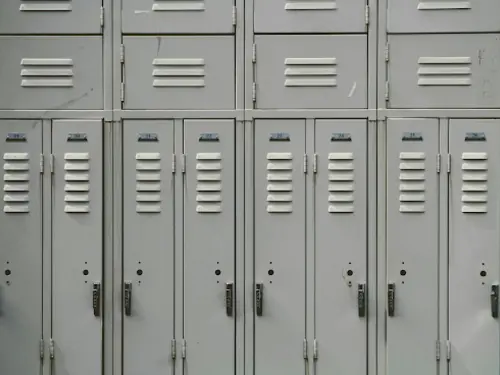
Instructor Name: Jeremy Murphy
Course Name and Course Number: Our Public Schools, EDUC169
Common Area Requirement(s) fulfilled: N/A
Program(s) Requirement(s) fulfilled: Education minor intro course
Prerequisite(s)/Permission of Instructor: Anti-requisite MONT 199C-F06-01, MONT 199C-S06-01
Meeting Times: M/W, 3-5pm plus 2 hours of asynchronous materials
Course Description: This interactive, interdisciplinary course introduces students to key debates and dilemmas in K-12 public schooling. Students will grapple with what schools are for, why we have them, and whether our school system lives up to its stated ideals. Students will scrutinize everyday practices and rituals of school life and imagine alternatives for how we might "do school." In tracing the evolution of our public schools, students will also critically examine their own personal schooling histories.

Instructor Name: Hayley C. Stefan
Course Name and Course Number: ENGL 260, Multi-Ethnic Literatures of the US
Common Area Requirement(s) fulfilled: Literature; Cross-Cultural Studies
Program(s) Requirement(s) fulfilled: N/A
Prerequisite(s)/Permission of Instructor: N/A
Meeting Times: 5:30-7:30pm Mondays and Thursdays, and two hours of unscheduled, asynchronous work
Course Description: This course centers literature by writers whose identities have marked them as historically “other” to a predominantly white European body of works, including African American, Asian American, Indigenous, and Latinx authors, among others. Through our reading, discussion, and student research, our class will consider how literature influences and responds to complex conversations about race, ethnicity, nationality, and identity. Together we will ask what brings together “multi-ethnic literature” as a field, as well as how variations across authors, content, and form resist easy categorization. Alongside discussion of major and lesser-known works of multi-ethnic literature, we will contextualize our reading with the crucial role of activism in the development of this field and of ethnic studies programs. Our class will bridge the field’s history and contemporary moment through multi-ethnic U.S. writers’ reflections of their roles in education and publishing today via trends like #OwnVoices and the We Need Diverse Books organization. We will examine these concepts through and with attention to various forms, including but not limited to comics, creative nonfiction, novels, poetry, and short stories, from multiple genres.
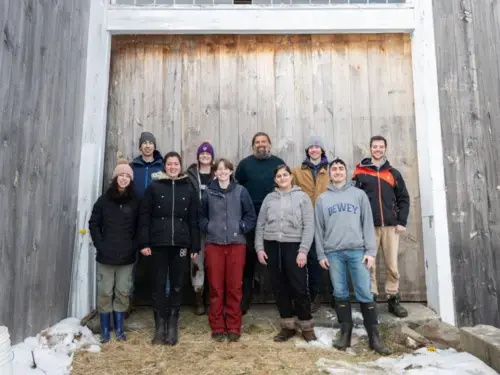
Instructor Name: Chris Staysniak
Course Number and Name: HIST 122, Food, Power, and the Environment
Common Area Requirement(s) fulfilled: Historical Studies
Program(s) Requirement(s) fulfilled: History Major, Environmental Studies; Peace and Conflict Studies
Prerequisite(s)/Permission of Instructor: None
Meeting Times: Monday and Thursday 8-10pm EST plus 2 hours of unscheduled asynchronous time
Course Description: The story of the American food system Is fundamentally an environmental one. Food production has evolved from a process that was bound by seasonal and regional limitations to a highly industrialized and astoundingly productive system that defies time and space. This course will explore this transformation over time. Along the way we will consider the trade-offs and social and environmental costs of being able to eat whatever we might desire regardless of what time of the year from a food chain that largely exists out of sight and out of mind for consumers. Meal time will never be the same!

Instructor Name: Tim McEldowney
Course Number and Name: MATH 135, Calculus 1
Common Area Requirement(s) fulfilled: Mathematical Sciences
Program(s) Requirement(s) fulfilled: Majors: ECON, BIOL, CHEM, PHYS, NEUR, ACCT, and Health Professions
Prerequisite(s)/Permission of Instructor: high school precalculus or equivalent
Meeting Times: Monday, Wednesday, and Friday 3-5pm EST
Course Description: This is the standard version of Calculus at the College. Considers the calculus of real-valued functions of one variable for students who are planning further coursework in mathematics, a major in the social or physical sciences, or a premedical program. Emphasis is placed on a conceptual understanding of calculus, presenting material from symbolic, numerical, and graphical points of view. The concepts of limit, continuity, and derivative are developed and applied to algebraic, logarithmic, exponential, and trigonometric functions. Applications of the derivative are explored.
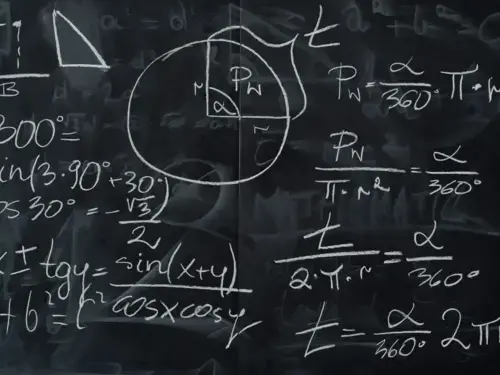
Instructor Name: Joselyne Aniceto
Course Number and Name: MATH 136 Calculus 2 (1.25 credits)
Common Area Requirement(s) fulfilled: Mathematics
Program(s) Requirement(s) fulfilled: CHEM, ECON, MATH, PHYS, STAT
Prerequisite(s)/Permission of Instructor: MATH 135 Calculus 1 or equivalent
Meeting Times: Tuesday, Wednesday, Thursday 4-6pm EST plus 2 hours of asynchronous time
Course Description: This course considers single-variable calculus for students who are planning further course work in mathematics. Course content includes the concept of the integral, techniques and applications of integration, infinite sequences and series, and an introduction to ordinary differential equations. The emphasis throughout will be on achieving a qualitative and graphical understanding of the concepts, as well as developing computational skills.
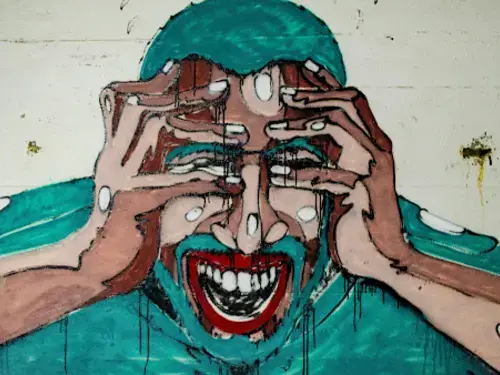
Instructor Name: MaryCatherine McDonald
Course Name and Course Number: Trauma & the Troubled Mind: The Ethics of Trauma, PHIL223
Common Area Requirement(s) fulfilled: Philosophical Studies
Program(s) Requirement(s) fulfilled: Philosophy major/minor, PCON concentration
Prerequisite(s)/Permission of Instructor: None
Meeting Times: Tuesday & Thursday 6-8pm + two hours asynchronous material per week
Brief Course Description/Notes: After trauma, we can find traces of the past in the way we see the world, in our behavior as we relate to others, and even in our genes. But what, exactly, is trauma? And what does it mean to be traumatized? This course examines the very nature of trauma from the perspectives of philosophy, psychology, and neuroscience. While looking critically at the history of the study of trauma, we will turn our focus on the ethical dimensions of understanding and treating trauma. What can we - and what ought we - to do about trauma and our troubled minds? Students pursuing all majors are encouraged to take this course.
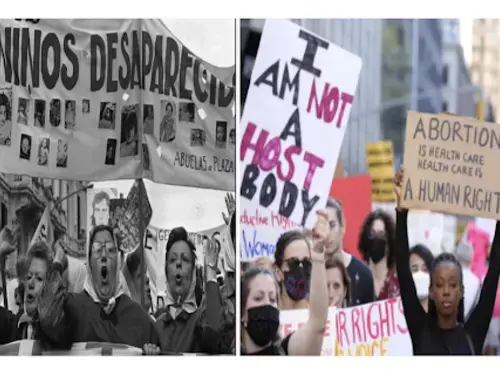
Instructor Name: Vickie Langohr
Course Name and Course Number: POLS 216, Democratization and Women's Rights
Common Area Requirement(s) fulfilled: Social Science
Program(s) Requirement(s) fulfilled: one of six upper division courses for the POLS major
Prerequisite(s)/Permission of Instructor: none
Meeting Times: Tues and Th 6-8 pm plus 2 hours asynchronous material per week
Course Description: Democratization occurs when a) citizens in an authoritarian regime which does not choose leaders through free elections or protect citizens’ rights replace that regime with a democracy, or b) citizens in a country with democratic institutions win significant expansions of their rights. We will examine the role that women play in overturning authoritarian regimes, including the Mothers of the Plaza de Mayo seeking information about their kidnapped children from the Argentine Dirty War regime of the 1970s, whose activism fit within traditional gender norms, and female guerrilla fighters against apartheid in 1980s South Africa and underground radio operators in the Solidarity movement against Communist rule in 1980s Poland, who challenged prevailing gender expectations. We will ask under what conditions democratization increases or limits women’s power, from instituting the world’s first parliamentary gender quotas in Argentina to increasing the power of the Catholic Church and limits on abortion in post-Communist Poland. We will also examine challenges to women’s full equality in the U.S., including the overturning of Roe v. Wade’s nationwide legalization of abortion, femicide (killings of women), and unaffordable child care, and how citizens have mobilized to change them.
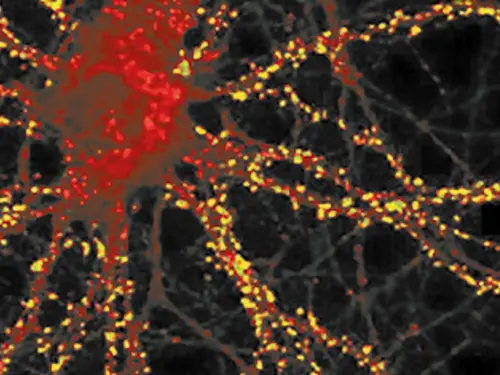
Instructor Name: Professor Jesús E. Madrid
Course Name and Course Number: PSYC 221- Physiology & Behavior
Common Area Requirement(s) fulfilled: Natural Science
Program(s) Requirement(s) fulfilled: Neuroscience- Systems/Behavioral; Biology- Cognate; Health Studies- Natural Sciences and Statistics; Psychology- Biological Processes
Prerequisite(s)/Permission of Instructor: None
Meeting Times: Tuesday-Thursday 4:30pm-6:30pm
Course Description: This course provides an introduction to the physiological basis of behavior. We will cover experimental methods and concepts from psychology, physiology, and behavioral neuroscience. The nervous system plays a central role in behavior. It integrates information from external stimuli and internal states to ultimately help organisms effectuate changes in their environment.
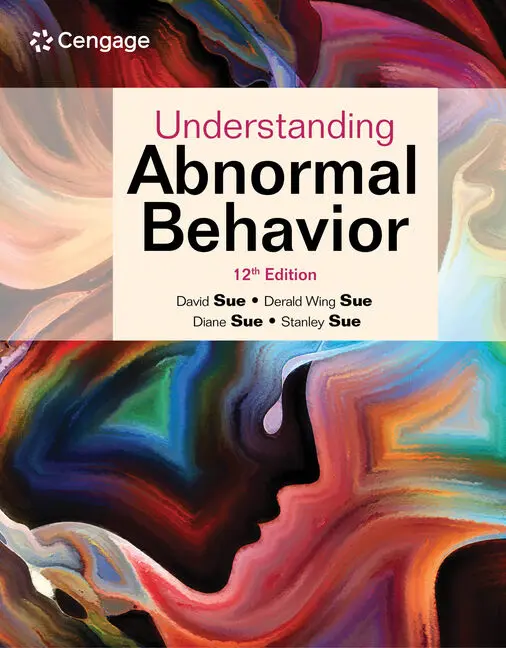
Instructor Name: Dr. Donna Demanarig
Course Name and Course Number: Psychopathology PSYC 229
Common Area Requirement(s) fulfilled: Social Science
Program(s) Requirement(s) fulfilled: Fulfills the 1 individual, social, and cultural processes course requirement
Prerequisite(s)/Permission of Instructor: PSYC 100 Introduction to Psychology
Meeting Times: Tuesdays and Thursdays 6-8 PM EST plus 2 hours of asynchronous time each week.
Course Description: Examines mental illness throughout the life span, with discussions of the developmental, biological, behavioral, psychosocial, cultural, and other theories that attempt to explain emotional and behavioral problems. One goal for the course is to develop an understanding of how information about mental illness and mental health is obtained, and the problems associated with the evaluation and interpretation of this information.

Instructor Name: Jacques Linder
Course Name and Course Number: RELS 141 - Contemporary Christian Morality
Common Area Requirement(s) fulfilled: Studies in Religion
Program(s) Requirement(s) fulfilled: Catholic Studies
Prerequisite(s)/Permission of Instructor: N/A
Meeting Times: Mondays and Wednesdays 6:15-8:15pm plus 2 hours unscheduled asynchronous time
Course Description: This course addresses the implications of Christian belief and identity for personal and social morality. Readings examine fundamental ethics of moral agency, human freedom, conscience, sin, suffering and virtue, as well as the method and themes of Catholic social teaching. The final part of the course explores several areas of contemporary ethical concern including the use of violence, human sexuality, healthcare, and the environment, as well as the student’s own interests. Students will be expected to read carefully, think deeply, write concisely, and speak generously about long-standing and on-going social issues in this discussion-based course.
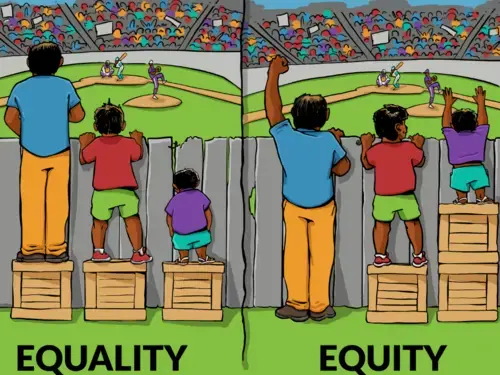
Instructor: Renee Beard
Course Number and Name: SOCL 263 Medical Sociology
Common Area: Social Science
Programs: Sociology Major
Prerequisites: None
Meeting Times: Tuesday and Thursday 4-6pm EST plus 2 hours unscheduled asynchronous time
Course Description: This class explores the Sociology of Health & Illness at the micro, mezzo and macro levels. We will examine questions like: How do individuals experience and narrate illness or disability? How do social interactions and roles shape perceptions and subjective accounts of various ailments? How do social structures, such as the medical, pharmaceutical and insurance industries, influence understandings of and approaches to health, illness, difference and disability? How is the climate shaping our health? How is housing a public health issue? Through engagement with the social determinants of health, the Immigrant Paradox, and the health-wealth gradient, this course asks students to interrogate our deeply held assumptions about health in America. Designated “sociology in action” time will be used to investigate current social issues, such as policing/the prison system, the Black Lives Matter or #MeToo movements, the Dobbs’ decision, organ transplantation, health care reform, and “designer babies.” The impact of mass media and the Covid-19 pandemic will also be examined to understand the social construction of health and illness, stigma, and disparities across social variables such as race/ethnicity, socioeconomic status, gender, age, nationality, and sexual orientation. Anyone interested in working in a medical field, studying health or health policy, or utilizing healthcare services will benefit from this course. This summer includes an exciting opportunity for the class to partner with CISS 150, Introduction to Global Health, for a “Global is Local” component covering international materials not typically possible in a traditional Medical Sociology course.

Instructor Name: Elizabeth O'Connell-Inman
Course Name and Course Number: Elements of Spanish; SPAN 100
Common Area Requirement(s) fulfilled: Language
Program(s) Requirement(s) fulfilled: none
Prerequisite(s)/Permission of Instructor: 0-2 years of previous high school Spanish or permission by instructor. If students have previous experience with the language, a placement score must be on record. Spanish Background Questionnaire required.
Meeting Times: MW 6:30-8:30pm with an additional 2 hours of asynchronous time per week
Brief course description/Notes: Elements of Spanish begins a comprehensive presentation of the basic structures and vocabulary of Spanish fully integrated within a cultural framework. This is a communication–oriented course. Activities are designed to practice all language skills: listening comprehension, speaking, reading and writing. Class time will be devoted to oral communication as well as acquiring the learning techniques necessary to improve your language skills. This course counts as the equivalent of SPAN 101 and serves as a prerequisite for SPAN 102.

Instructor Name: Meaghan Deiter
Course Name and Course Number: Speaking and Communication, THEA 205-01
Common Area Requirement(s) fulfilled: Arts
Program(s) Requirement(s) fulfilled: ESIB has approved this course as an elective requirement
Prerequisite(s)/Permission of Instructor: None
Meeting Times: Tuesday, Thursday 6:30-8:30 pm, plus one weekly asynchronous session
Brief Course Description: This course builds public speaking and communication skills. Whether you are delivering a formal speech or class presentation, sitting for a Zoom interview, or participating in a seminar discussion, this class will help you become an effective, confident communicator. Topics covered include creating clear intentions and objectives for moments of public speaking; connecting to others and listening actively in both casual and formal interactions; and cultivating strong, flexible vocal production. To develop these skills, interactive exercises inspired by theatre techniques serve as building blocks. No prior public speaking or theatre experience is needed. The course is designed to meet every student where they are and to strengthen both formal, prepared speeches and impromptu speaking skills. Projects encompass delivering texts written by others, workshopping academic presentation techniques, presenting personal stories, exploring Zoom interview techniques, and creating digital media content.